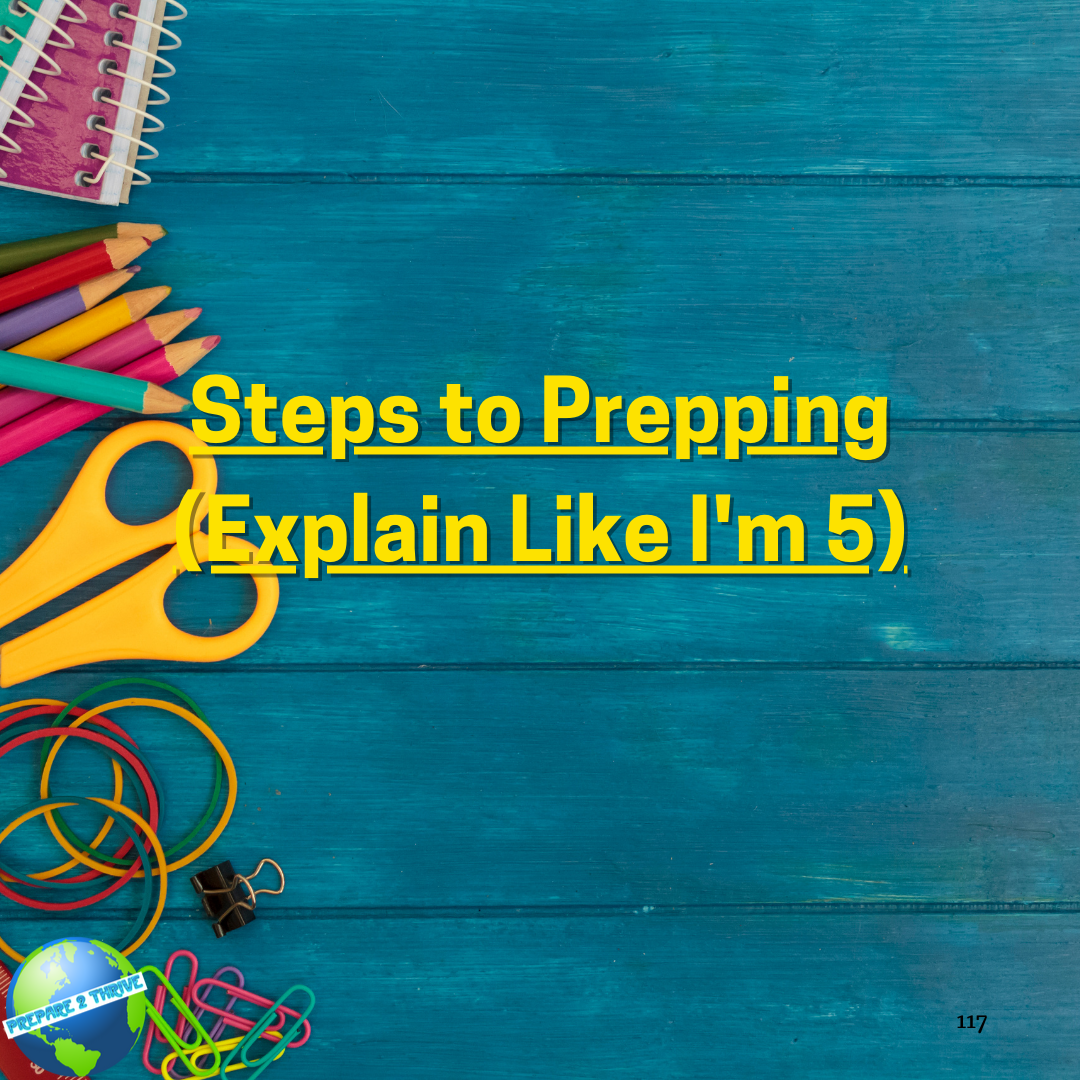If you are new to prepping it can often be overwhelming, and many do not know where to start. It's made more difficult because every person lives differently, and has different challenges to face. Here's a simple guide to get you going.
The following guidelines will help you get started, and hopefully guide you to be a successful prepper.
STAGE 0 (do this today)
-
Make a list of all the events that have happened in your area (your city, your state/province) in the last 2 years. Power outages, tornadoes, hurricanes, snowstorms, floods, drought, wildfires, riots, blizzard, et cetera. (there's a full list here Disaster Scenario Master List )
-
For each event, list what disturbances it caused to the people who were affected by it. So maybe a tornado hit 50 kilometres away... you were not affected by it, but what happened to the people who were. Looking another way, how would you have been affected if it struck your house/business? Include how long the effects lasted.
-
What would you need to get through that event when it happens next? Make a list of the food, water, power, 1st aid, and such so that WHEN (not IF) this happens next year, you can carry on with life as if nothing is happening.
STAGE 1
-
Set a grocery shopping day each week, and stick to the schedule. Never say "oh, we still have food, I'll shop tomorrow instead".
-
When doing your shopping, buy for at least 8 days. If you have a bit of extra cash, go for 10-14 days of food and household supplies. Buy the food you normally eat so that in any emergency situation you don't need to switch diets (further stressing your already stressed family).
-
Repeat
STAGE 2
-
Convert an area of your garden to growing food. A vegetable garden is good. Maybe some chickens or rabbits.
-
Obtain an endless supply of drinking water. People need about 20 litres per day. For a year, that's 7000 litres (a small swimming pool) for each person. You can not store enough water for even 1 year. You need a source. Best option is a well. Depending upon the soil you may be able to drive your own well point. If you are careful, you can even do this in cities. Then hide the well under a bush or something.
-
Get a power source. You'll need a battery bank and inverter (you don't want to run a generator 24 hours a day). Then to charge the batteries either a diesel generator, or preferably solar panels. You can calculate and size your electrical needs here: prepare2thrive.com/power
STAGE 3
-
Set long-term goals. Where on the planet is the best place to live where you and your family will be safest? How can you survive there? Make your goals S.M.A.R.T. goals. A SMART goal should be Specific, Measurable, Achievable, Realistic and Time-bound. By setting a goal, an individual is making a roadmap for a specific target. The elements in the framework work together to create a goal that is carefully and thoughtfully planned out, executable and trackable. Goals should also include milestones. So don't say "By this date I'm going to be ready". Instead, say "by January 1st I'm going to have 'A' done. By April 1st I'll have 'B' done and part of 'C'. By this date next year.... In 5 years I'll be...."
-
Start building the skills and resources needed to put your plan into action.
-
Put your plan into action.
Final Thoughts
Keep in mind that the goal of prepping is so that you can get past any emergency situation, without it affecting your life. For example, when the power goes out for your neighbours, yours stays on and you keep living normally. If the city shuts off the water supply, you switch on your well pump and continue having water in your house. Continuing to live your normal, day-to-day life is the end goal.
This may require changes in your lifestyle. The best time to make those changes is today, not the day the lights go out. But this does not mean you have to live in a tent in the woods, eating bugs. It is possible to live quite comfortably, while reducing your expenses and severing your connections to relying on other people.
